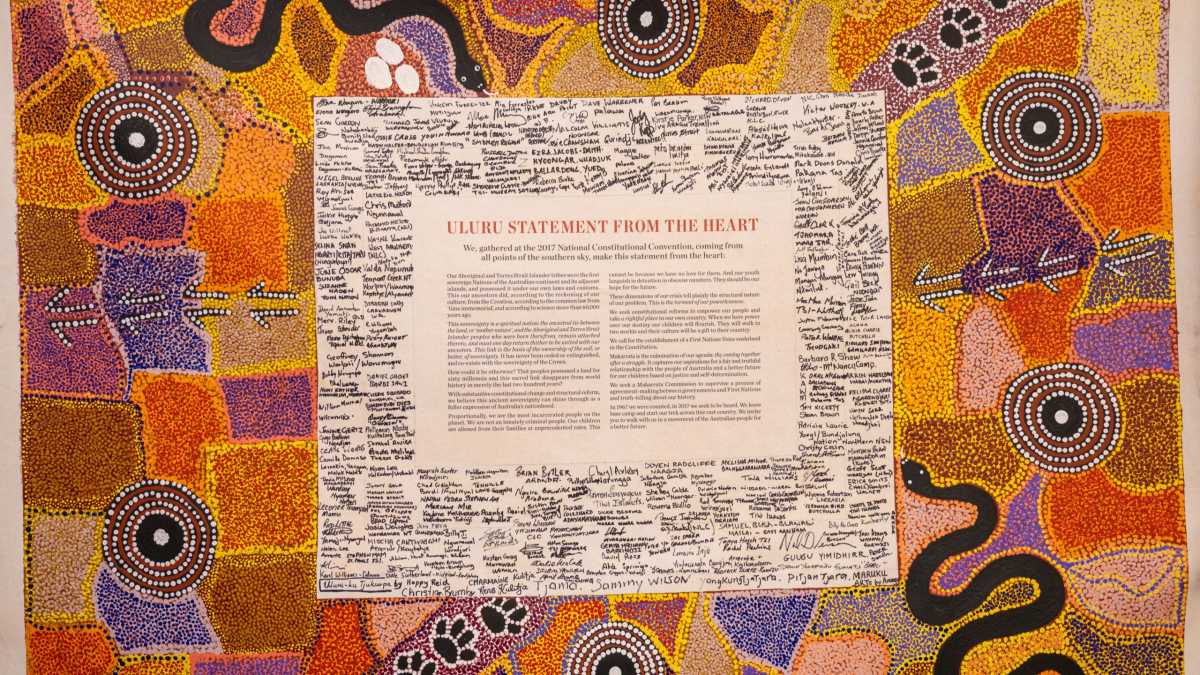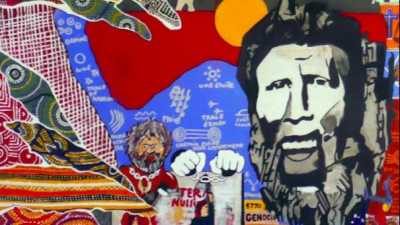National Sorry Day, 26 May, holds immense significance in Australia's journey towards Reconciliation.

Image: Three people sitting on the bed. An older woman, teenage girl and toddler.
National Sorry Day marks the start of Reconciliation Week, 26 May to 3 June, and commemorates a landmark report titled ‘Bringing them home’, which explored the forced removals of Aboriginal and Torres Strait Islander children from their families.
The report shed light on the harm and impact of government policies on a generation of children and families now known as the Stolen Generations, and the need for a national apology and redress for the many lives impacted.
Significance of National Sorry Day
National Sorry Day provides an opportunity for us as a society to acknowledge historical wrongs committed against Aboriginal and Torres Strait Islander peoples through forced removal and to recognise the intergenerational trauma and ongoing impact these policies have had.

Image: A large crowd outside at a protest. People are holding Aboriginal flags and BLM posters.
The Uluru Statement and its connection to National Sorry Day
The Uluru Statement from the Heart, released in 2017, emerged from a series of dialogues and consultations with Aboriginal and Torres Strait Islander communities across Australia, culminating in a gathering of over 250 Aboriginal and Torres Strait Islander leaders at Uluru.
The connection between National Sorry Day and the Uluru Statement is in a shared purpose of addressing historical injustices and fostering Reconciliation. Both National Sorry Day and the Uluru Statement call for acknowledgement, respect, and a commitment to creating a more equitable society. They also share a date - May 26 is the Anniversary of the Uluru Statement, which was tabled in 2017.
The Uluru Statement emphasises the importance of genuine recognition of Aboriginal and Torres Strait Islander people and the need for consultation through constitutional reform, and the creation of a Makarrata Commission to oversee treaty negotiations and truth-telling. It provides a roadmap for meaningful change and a pathway towards healing the wounds of the past. Life Without Barriers supports the Constitutional recognition of Aboriginal and Torres Strait Islander people as described in the Uluru Statement from the Heart. Read our Uluru Statement from the Heart Position Statement here.

Image: The Uluru Statement from the Heart surrounded by signatures and Aboriginal and Torres Strait Islander art work.
The difference between National Apology Day and National Sorry Day
National Sorry Day is observed on 26 May each year in Australia and the date is connected to the one year anniversary of the ‘Bringing them Home’ was tabled in Parliament which included a recommendation for a national apology.
National Apology Day is observed on February 13, the anniversary of when then-Prime Minister Kevin Rudd gave a National Apology to the Stolen Generations in the Australian Parliament in 2008. This significant event aimed to acknowledge the pain, suffering, and trauma endured by the Stolen Generations due to forced removal policies.

Image: An Aboriginal woman speaking at a meeting. She is inside and wearing a cheetah print top.
The journey of Reconciliation continues
Sorry Day marks the start of Reconciliation week which is dedicated to raising awareness and encouraging all members of society to play a part in strengthening the relationship between Aboriginal and Torres Strait Islander people and non-Indigenous Australians.


